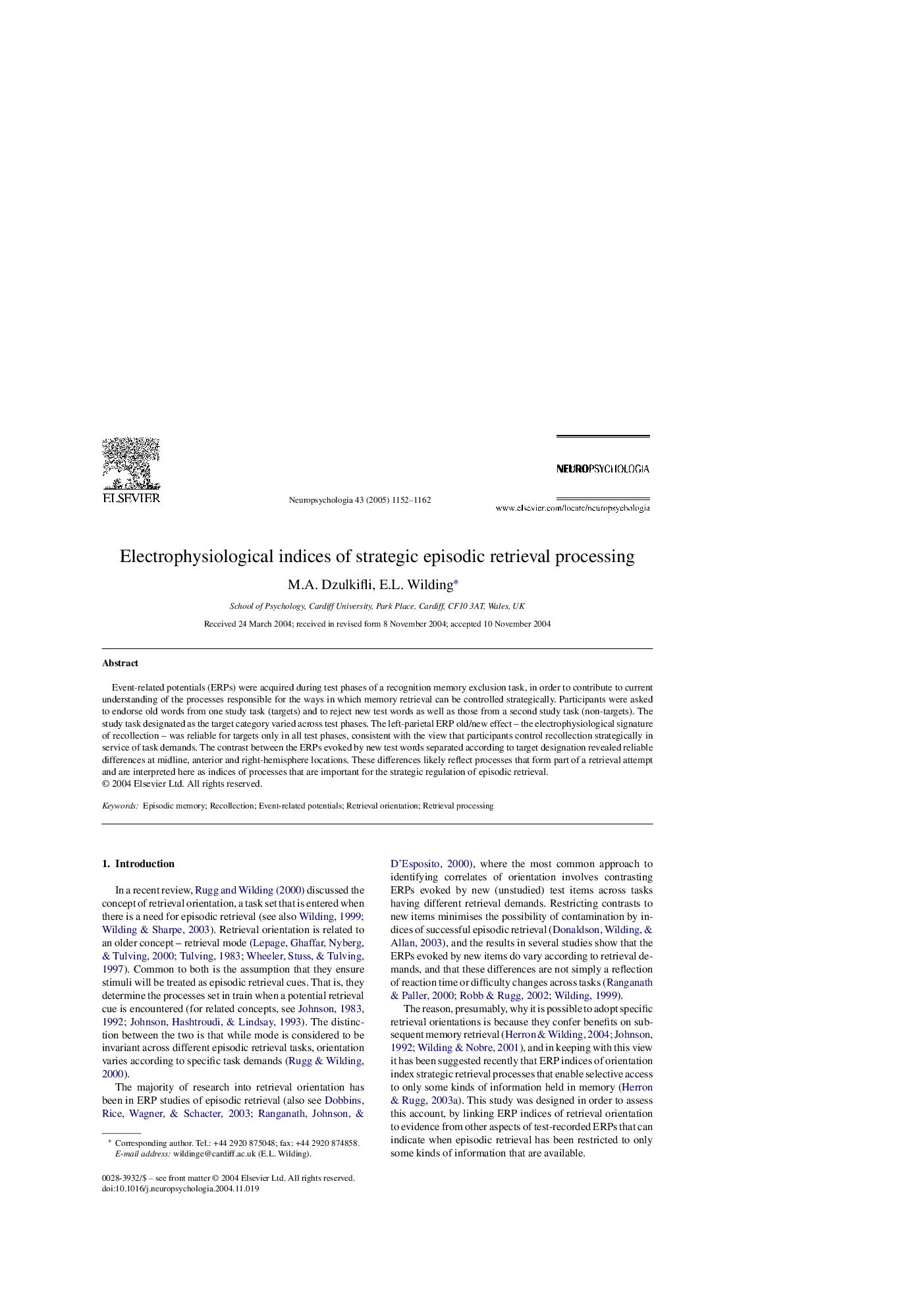| Article ID | Journal | Published Year | Pages | File Type |
|---|---|---|---|---|
| 10467394 | Neuropsychologia | 2005 | 11 Pages |
Abstract
Event-related potentials (ERPs) were acquired during test phases of a recognition memory exclusion task, in order to contribute to current understanding of the processes responsible for the ways in which memory retrieval can be controlled strategically. Participants were asked to endorse old words from one study task (targets) and to reject new test words as well as those from a second study task (non-targets). The study task designated as the target category varied across test phases. The left-parietal ERP old/new effect - the electrophysiological signature of recollection - was reliable for targets only in all test phases, consistent with the view that participants control recollection strategically in service of task demands. The contrast between the ERPs evoked by new test words separated according to target designation revealed reliable differences at midline, anterior and right-hemisphere locations. These differences likely reflect processes that form part of a retrieval attempt and are interpreted here as indices of processes that are important for the strategic regulation of episodic retrieval.
Related Topics
Life Sciences
Neuroscience
Behavioral Neuroscience
Authors
M.A. Dzulkifli, E.L. Wilding,
